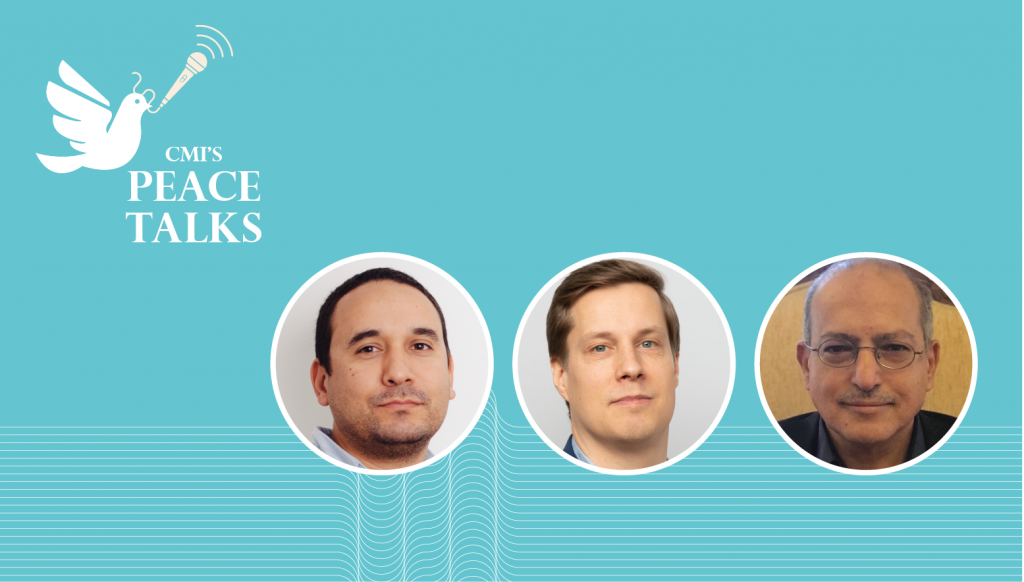The coronavirus crisis is making the world more fragile — How can peace mediation build sustainable societies?

Violent conflicts are being increasingly recognised as one of the main hurdles to sustainable development. In this episode we discuss how peace mediation could lay the basis for more resilient societies in the Middle East and North Africa.
To leave no one behind. This is what world’s nations promised to do when they set the Sustainable Development Goals (SDGs) in 2015. These targets, to be achieved by 2030, stretch from eradicating poverty and reducing inequality to combating climate change and building peaceful societies.
However, the picture looks now a lot gloomier than it did 5 years ago. The coronavirus pandemic is making the world even more fragile in a situation where violent conflicts are being increasingly recognised as one of the main hurdles to sustainable development.
In this episode Abdulghani Al-Iryani, Senior Researcher at the Sana’a Center for Strategic Studies in Yemen, and Maruan El-Krekshi, Head of CMI’s Middle East and North Africa team, discuss the relationship between peace and sustainable development from the perspective of their region.
“Building peace requires a broad participation by the people”
For instance, both in Yemen and Libya wars have pushed back development several years, destroying economy, health care systems and leading to mass displacement of people. Al-Iryani and El-Krekshi emphasize that conflicts in the region cannot be solved in a sustainable way if peace mediation efforts focus narrowly on power sharing between the main conflict parties.
“Mediators usually start with the wrong premise. They are mandated to stop a war. But it is not enough to stop shooting. You have to actually build peace. And building peace requires a broad participation by the people of the country in question. The United Nations and their mediators are not going to be able to determine what will work for Yemen. Yemenis have to decide by themselves”, says Al-Iryani.
In Yemen, CMI is partnering with the Sana’a Center to support the participation of key groups, such as political parties, women and tribal leaders, in the peace process. Strengthening the voice of marginalised groups is at the core of CMI’s work also in Libya.
“Many of the conflicts in the region need peace processes that are inclusive as possible but that also focus on envisioning futures that benefit everyone. For instance, what kind of future the Libyans themselves want for their country?”, El-Krekshi points out.
This episode is a part of our 20th anniversary campaign to raise awareness on themes that we consider critical for successful peacemaking now and in the future.
In CMI’s Peace Talks we look at the world through peacemaking lenses. We have conversations with both our own and other top experts on what it takes to build lasting peace amidst the volatile world situation. In the wise words of our founder, Nobel Peace Laureate Martti Ahtisaari, we believe that all conflicts can be resolved. This podcast is about how to do it.
Guests
Abdulghani Al-Iryani, Senior Researcher at the Sana’a Center for Strategic Studies, and Maruan El-Krekshi, Head of CMI’s Middle East and North Africa team.
***
Recorded: August 18, 2020
Edited: Antero Karvonen
Host: CMI’s Communications Manager Antti Ämmälä
Jingle: Jukka Backlund
***
CMI’s Peace Talks available on: Anchor, Spotify, Google Podcasts and iTunes.